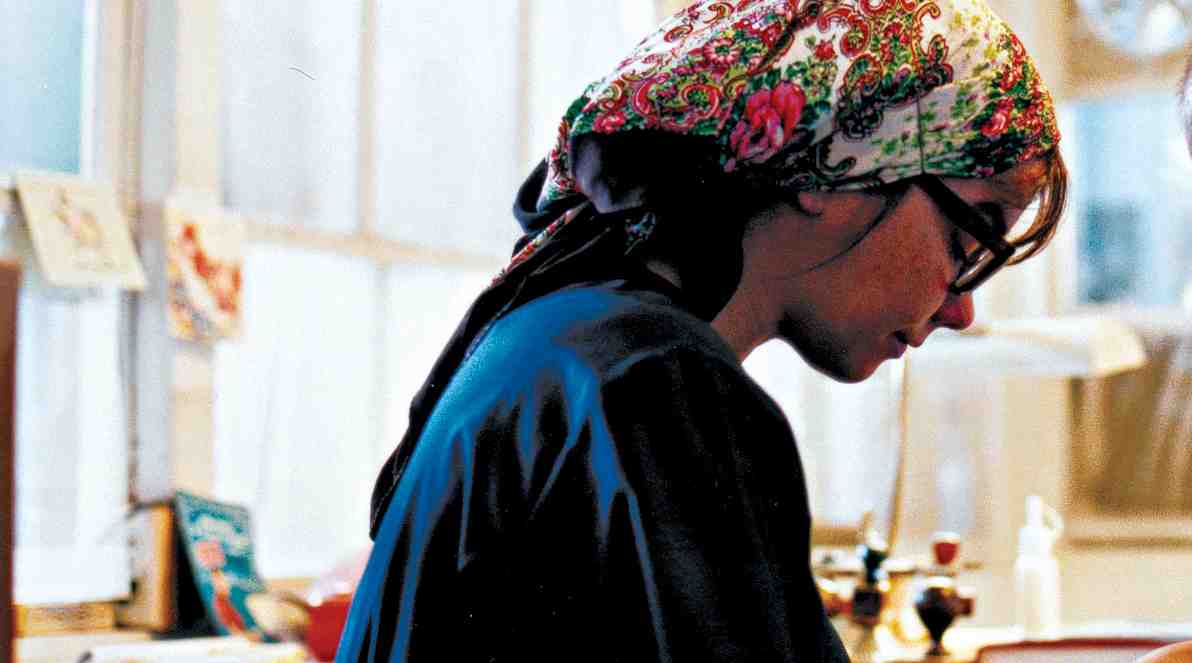
“Our sweetest songs are those that tell of saddest thought.”
– Percy Bysshe Shelley
One the main reasons we enjoy movies so much is because of the love we naturally have toward the power of story; a love that is made even stronger by our deep, instinctive need to empathize with the characters we appreciate (or despise!) and their fate, unraveling before our eyes as we sit, powerless and captured on the edge of our seats.
But how come most of the movies that best demonstrate this fact are often the ones that make us desperate, and even end up causing a fair share of the audiences to sigh and cry? Here is a list of 10 films from this century that carried a particularly heavy emotional load on viewers, whatever their main aim may have been.
Some of these movies may leave you empty and depressed about life on a whole, while others are likely to bring you to tears while simultaneously putting a melancholic, sad smile on your face. Whenever you’re ready, prepare to hold your tears and enjoy your reading!
Please note that every single text related to the following entries featured on this list will contain heavy spoilers fully describing many key plot points and/or final scenes for each movie listed.
You’ve been warned!
10. A Single Man (2009)
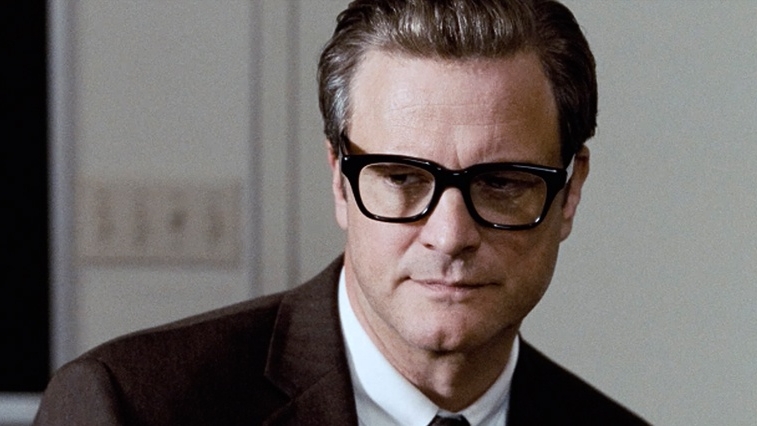
Tom Ford’s directorial debut follows George Falconer (Colin Firth), a British college professor unable to cope with the unexpected death of his boyfriend Jim (Matthew Goode).
Set in 1962 and starting eight months after Jim’s death, “A Single Man” focuses on classic themes such as grief and memory, but does so while allowing us to empathize with a main character who is in many ways forced to hide his raw emotions and identity from everyday society.
Forbidden from attending the funeral by his partner’s family, George struggles to find some will to live in the sole support of his best friend Charley (Julianne Moore), who’s facing an harsh period herself and still believes she’s in love with George despite his sexual orientation.
Featuring a strong and heartbreaking ending scene, “A Single Man” is a thought-provoking movie reflecting our innermost fear of solitude and the need for sadness in our lives, which is most of the time the only emotional lever that can possibly help overcome seemingly unbearable pain.
As Ford’s camera delves deep into the minds of the broken characters put on film, the viewers are offered catharsis and find a way to hope for (maybe) future happiness just like George does when he decides not to commit suicide. But still, death comes for the finally peaceful professor in the form of a sudden heart attack, briefly allowing him to see Jim one last time, and maybe reunite with him in a supposed afterlife.
9. Call Me By Your Name (2017)
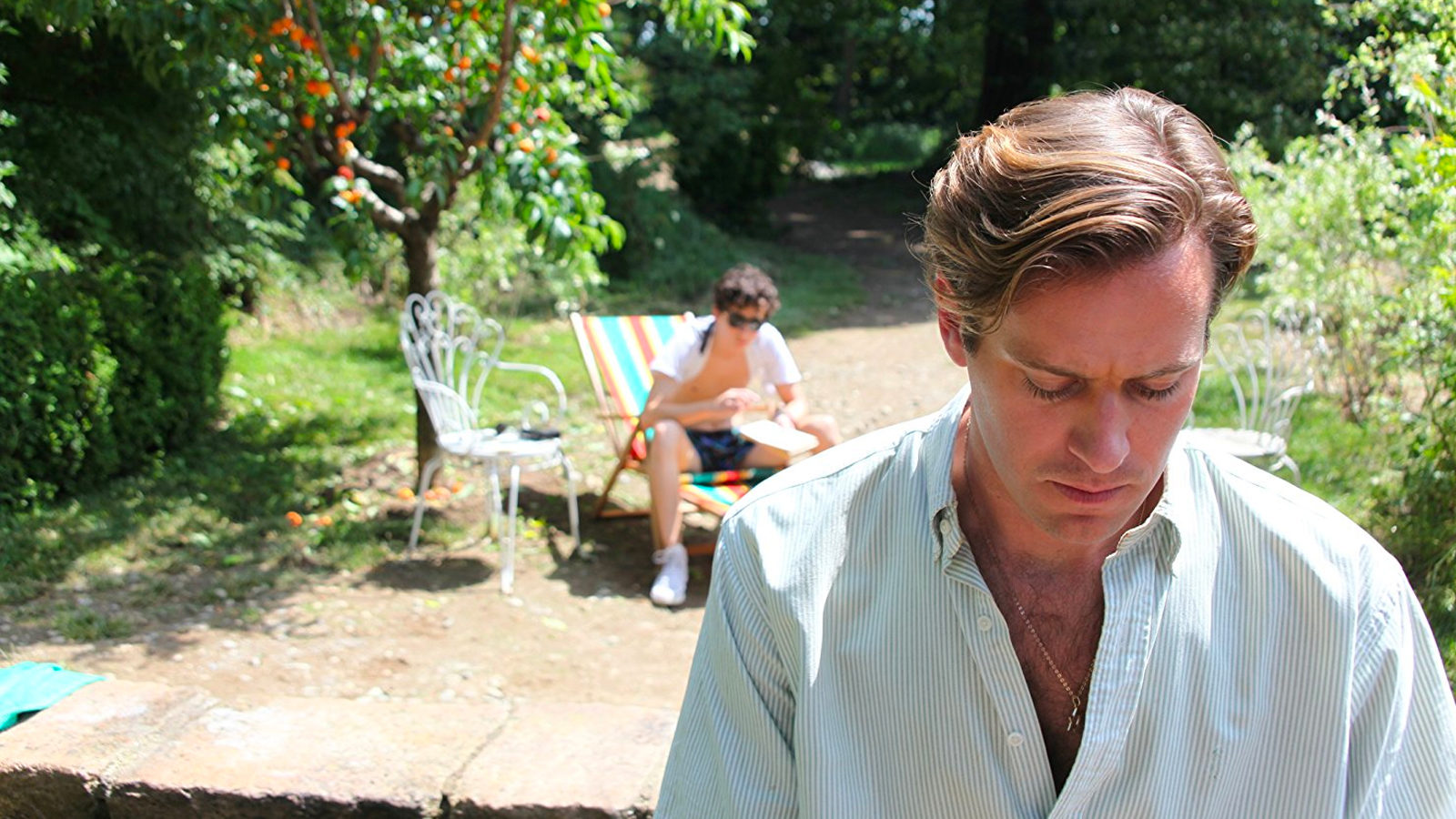
Released just months ago, Luca Guadagnino’s latest cinematic effort, recently chosen as one of the nine Oscar nominees for this year’s Academy Award for Best Picture, has already left its mark on many viewers, gaining a strong reputation as one of the most interesting romantic movies of this decade.
“Call Me By Your Name” is a tale of desire and personal growth set in 1983, revolving around 17-year-old Elio (Timothée Chalamet) and his summer stay with his family in the beautiful and green countryside of northern Italy.
Well-educated and loved by his parents, Elio spends most of his days reading and partying with his usual summer friends, at least until his father’s new American assistant Oliver (Armie Hammer) is invited to join them in their villa for six long weeks. Soon the young man will develop a strong attraction for the newcomer, starting a strong and secret relationship that will ultimately change Elio’s view on love and sexuality.
After an intense and unforgettable summer, things go sour when Oliver has to return to America and phones back to Italy days later with the news that he’s getting married, leaving Elio desperate and confused about the meaning of their bond and relationship.
We are left with a truly great monologue from Mr. Perlman (Michael Stuhlbarg), expressing not only his unconditional support for his own son, but also a certain longing and envy for a kind of love that he has never been able to find and experience; moments later, the end credits roll over a shot of Elio, silently crying in front of the camera for minutes in one of this year’s most interesting long takes to date. Just like Elio, our heart is broken, too, and a life lesson is learned.
8. Million Dollar Baby (2004)
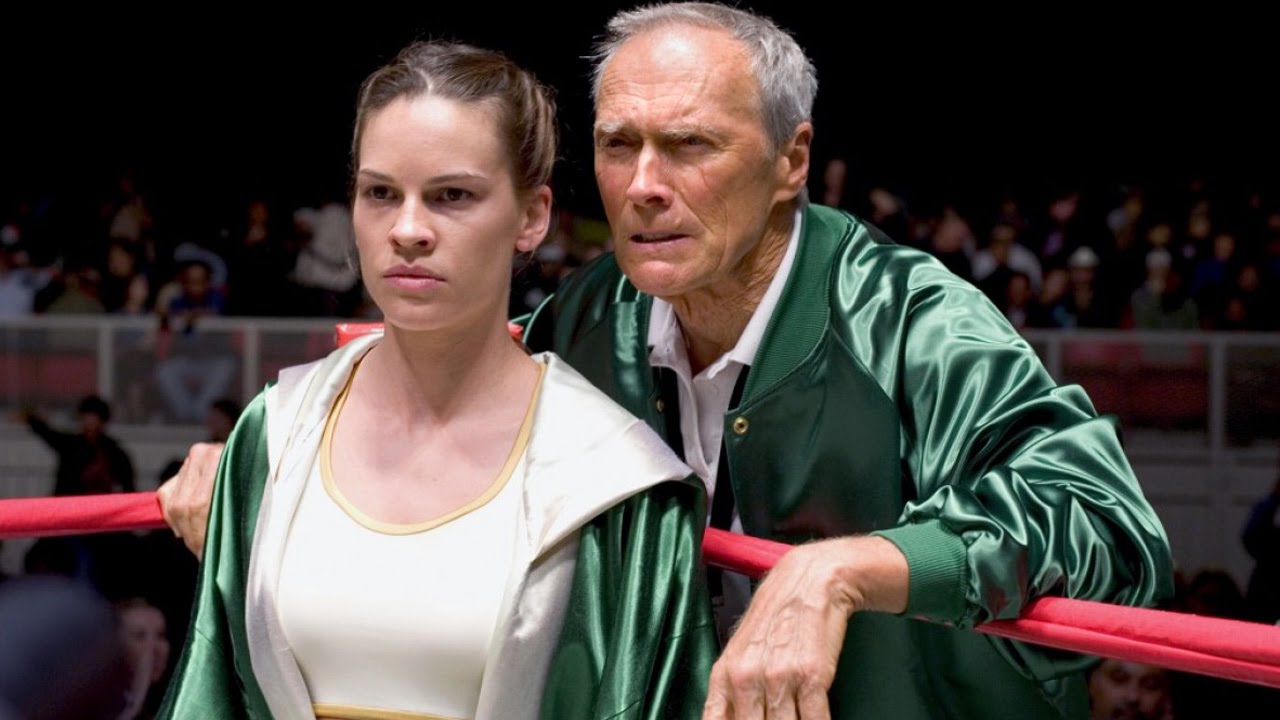
Long before all those American snipers and those trains to Paris, there was a time when even Clint Eastwood could direct a humane film. A critical and commercial success, “Million Dollar Baby” is one of the finest achievements in Eastwood’s filmography, and is widely regarded as one of the most moving and intense movies of this century because of its extremely painful and emotional final act.
Maggie Fitzgerald (Hilary Swank) is a waitress from a small town in Missouri with the dream of starting a successful boxing career. Frankie Dunn (Eastwood himself), the owner of the old Los Angeles gym where Maggie starts looking for a coach, refuses to train her because of her age and gender while Eddie “Scrap-Iron” Dupris (Morgan Freeman), Frankie’s employee, persuades her to keep training by herself in the gym in order to be noticed.
Finally, Frankie and Maggie start to bond over her hopes and increasing fighting ability, until he’s convinced that she’s ready for a titular fight. The big moment comes, and Maggie is hit by an illegal sucker punch that makes her fall on a misplaced stool in the ring that breaks her neck and leaves her a quadriplegic.
Alone and desperate, Maggie suffers a leg amputation and almost dies trying to bite off her own tongue in an attempt to bleed to death. The movie ends with Frankie secretly visiting Maggie in the hospital at night, allowing her to finally die with a fatal injection of adrenaline moments after their last goodbye.
7. Eternal Sunshine of the Spotless Mind (2004)

Written by brilliant screenwriter and director Charlie Kaufman, and by far Michel Gondry’s most interesting film along with “Be Kind Rewind,” “Eternal Sunshine of the Spotless Mind” has been able to gain a cult status and become a landmark of contemporary filmmaking.
Starring an all-star cast (Jim Carrey, Kate Winslet, Elijah Wood, Kirsten Dunst and Mark Ruffalo all have major roles in the film) and full of genius ideas and psychology, this is not only one of the most moving films of the 21st century, but also one of the best.
Mixing the romantic film formula with complex sci-fi elements and even comedy, “Eternal Sunshine of the Spotless Mind” follows the story of Joel Barish (Carrey), a lonesome and sad individual who finds it hard to break out of his introverted attitude, who one day meets young and beautiful Clementine (Kate Winslet), a woman capable of changing his life forever thanks to her vibrant way of life and extroverted character.
We soon come to learn that the relationship between the two has already ended, leaving Joel hurt and lonesome once again, while Clementine has had him erased from her memory forever thanks to an imaginific agency appropriately called Lacuna Inc. When Joel decides to undergo the same procedure to finally forget Clem and maybe start living again, he repents and a fight rages on inside his brain to save every memory of the couple’s life together, revealing both their best and worst moments and the preciousness of their bond, as love complicates the lives of every Lacuna worker involved in the process, too.
In the finale, the couple realizes they should start over again together even if they know they may be doomed to fail once again, as every moment shared will be worth the future pain and definitely worth living through. Talk about bittersweet endings…
6. Big Fish (2003)
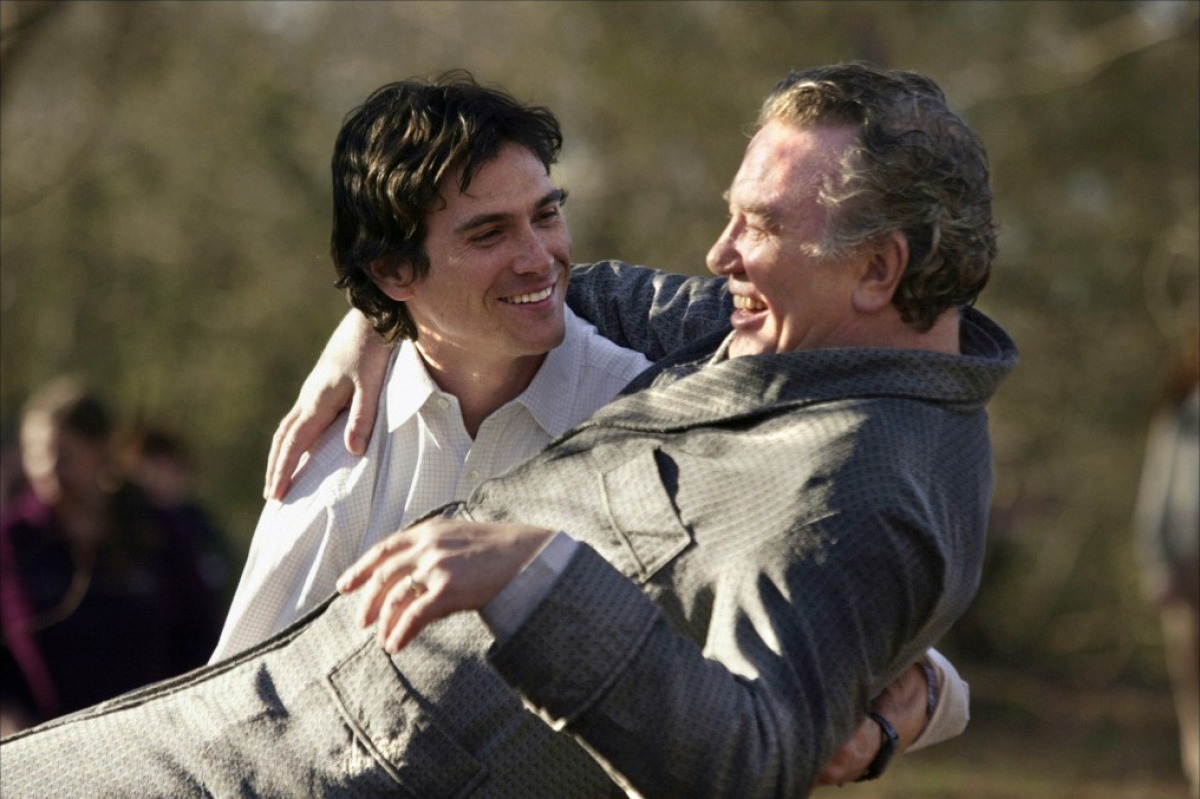
Tim Burton’s best movie to date in this century, “Big Fish” is an astonishing and creative fantasy film capable of striking all the right chords and, of course, succeeding in bringing audiences to tears thanks to an incredibly moving and brilliant grand finale, in which everything (and everyone!) we’ve seen up to that point comes back to sum up the essence and life of what must be one of the best characters Burton has ever been able to bring to the screen in his whole artistic career.
Edward Bloom (Albert Finney) is an old man with cancer who has spent his life telling stories full of giants, peaceful towns lost in the woods, witches, magic, and above all, a gigantic fish that can only be captured with a wedding ring.
All of these stories have one thing in common: he himself (portrayed in his young age by Ewan McGregor) is the protagonist of the various tales. Despised by his son Will (Billy Crudup) because of his attitude toward his vivid imagination, Edward has the chance to reconnect with Will when he comes to spend time with him before he dies.
Once again, Edward’s stories take the centre of the attention as viewers must decide whether to believe his incredible, unrealistic retelling of his life. At the end of the movie, Edward dies and all the different characters from his tales come to attend the service to everyone’s surprise, revealing how most of his beloved stories were indeed real memories turned into even more fantastical experiences, and a now reconciled Will promises to keep alive his father’s memory and narrations by illustrating them to his own son, as Burton’s camera deepens into the nearby lake, revealing the titular big fish swimming underwater.